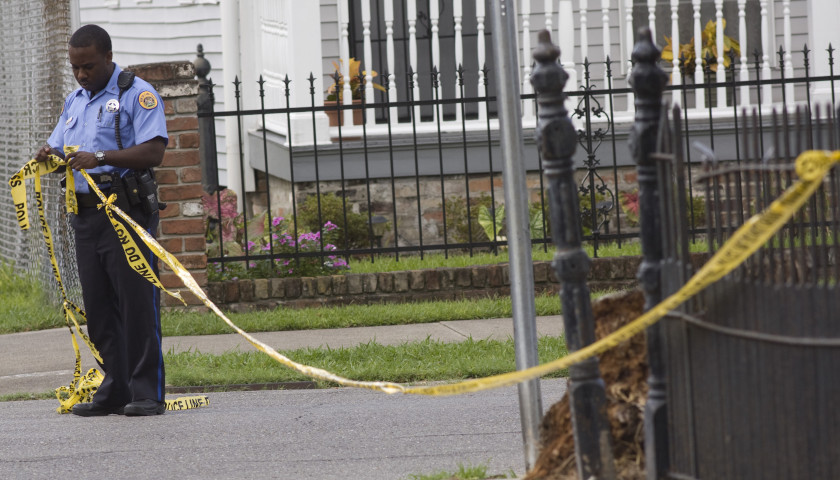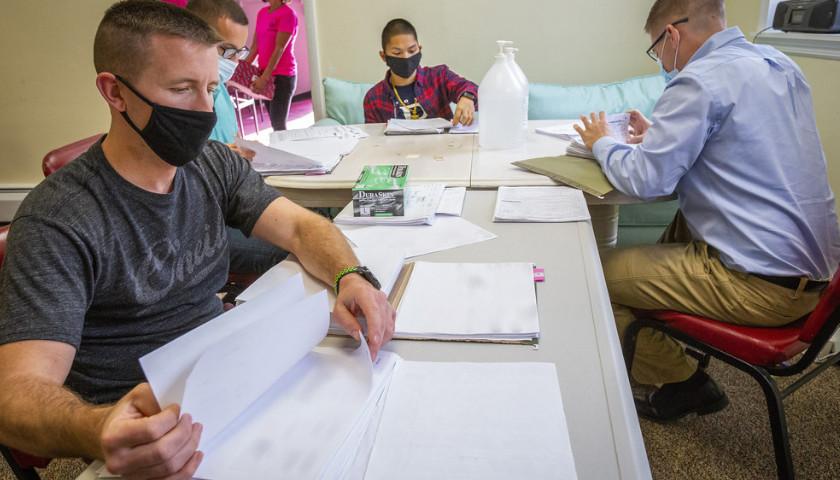by Anthony Hennen
Voters in Philadelphia ranked crime as a top concern heading into the May primary election.
Democrats, who have a strong majority in the city, even chose former City Councilwoman Cherelle Parker, who campaigned on public safety.
Whether Parker, who rode to victory on the support of the city’s political establishment, can align her policies with voter preferences, however, remains to be seen.
A survey from Lake Research Partners and Vera Action, a criminal justice reform group, in the final days before the primary found that, among Democrats, “voters overwhelmingly express a preference for a solutions-oriented approach to crime that includes tackling root causes over traditional ‘tough on crime’ approaches.”
Only 2% of voters weren’t concerned with crime, Vera found.
“Concerns over crime — both citywide and in voters’ own neighborhoods — look to be more pronounced among voters of color than among white voters, though concerns are elevated across the board,” Celinda Lake, Daniel Gotoff, and Sandra Markowitz of Lake Research Partners noted.
Top issues were “dealing with the root causes of crime,” safe communities, public education, guns, and “dealing with drivers of crime.”
Survey responders weren’t in favor of more police, however.
Instead, they preferred cracking down on illegal guns (32%), providing more mental health services and drug addiction programs (32%), offering more jobs and economic opportunities (26%), providing more after-school programs (24%), and implementing proven violence prevention programs (20%), Lake, Gotoff, and Markowitz noted.
Primary voters are a small group, but tend to be more politically motivated. Under 30% of the city’s Democrats voted in the primary.
The poll reflects a March public opinion poll by the Lenfest Institute (which owns the Philadelphia Inquirer) that found crime was a voter priority; those voters also prioritized access to mental health and drug treatment and improved police-community relationships over hiring more police officers.
However, 67% of respondents said the city doesn’t have enough police.
Parker’s public safety plan looks to split the difference. She ran her campaign on filling police vacancies and hiring more officers, ensuring that police are walking beats in a neighborhood and getting to know the community, and ensuring that officers are not doing civilian work.
At the same time, Parker wants to encourage alternatives to incarceration for young people and provide more resources for homeless Philadelphians and those with substance abuse issues.
“To reduce and deter violent crime, we need widespread systemic changes such as a return to community policing and greater investments in our neighborhoods, but also increased consequences for criminal violations,” Parker wrote in her plan. “We can balance supporting those who are most in need while arresting and prosecuting those who are perpetuating violence.”
While splitting the difference between hiring more police and helping people in need may be difficult, the Vera Action poll found that voters trust Parker, with 60% of respondents having a favorable view of her.
– – –
Anthony Hennen is a reporter for The Center Square. Previously, he worked for Philadelphia Weekly and the James G. Martin Center for Academic Renewal. He is managing editor of Expatalachians, a journalism project focused on the Appalachian region.
Photo “Crime Scene” by Derek Bridges. CC BY 2.0.





